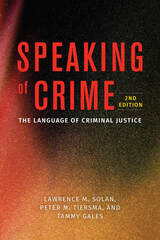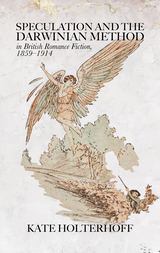
Catholic colleges and universities have achieved a prestigious place in American higher education, but at the risk of losing their religious identity. This book confronts challenges facing all members of the college community, from presidents and trustees through the faculty and deans to student-life professionals, in making a renewed commitment to that mission.
Developing the vision of Catholic higher education expressed in the Vatican statement Ex Corde Ecclesiae, these essays provide a framework for enhancing Catholic identity across the campus and in the curriculum. The contributors address significant aspects of the culture of Catholic higher education in order to prescribe the best practices that can help colleges and universities maintain their distinctive religious character and ethical vision.
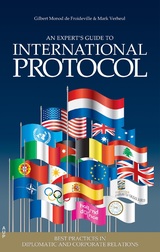
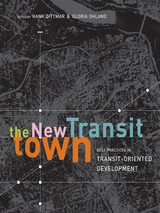
Transit-oriented development (TOD) seeks to maximize access to mass transit and nonmotorized transportation with centrally located rail or bus stations surrounded by relatively high-density commercial and residential development. New Urbanists and smart growth proponents have embraced the concept and interest in TOD is growing, both in the United States and around the world.
New Transit Town brings together leading experts in planning, transportation, and sustainable design—including Scott Bernstein, Peter Calthorpe, Jim Daisa, Sharon Feigon, Ellen Greenberg, David Hoyt, Dennis Leach, and Shelley Poticha—to examine the first generation of TOD projects and derive lessons for the next generation. It offers topic chapters that provide detailed discussion of key issues along with case studies that present an in-depth look at specific projects. Topics examined include:
- the history of projects and the appeal of this form of development
- a taxonomy of TOD projects appropriate for different contexts and scales
- the planning, policy and regulatory framework of "successful" projects
- obstacles to financing and strategies for overcoming those obstacles
- issues surrounding traffic and parking
- the roles of all the actors involved and the resources available to them
- performance measures that can be used to evaluate outcomes
Case Studies include Arlington, Virginia (Roslyn-Ballston corridor); Dallas (Mockingbird Station and Addison Circle); historic transit-oriented neighborhoods in Chicago; Atlanta (Lindbergh Center and BellSouth); San Jose (Ohlone-Chynoweth); and San Diego (Barrio Logan).
New Transit Town explores the key challenges to transit-oriented development, examines the lessons learned from the first generation of projects, and uses a systematic examination and analysis of a broad spectrum of projects to set standards for the next generation. It is a vital new source of information for anyone interested in urban and regional planning and development, including planners, developers, community groups, transit agency staff, and finance professionals.
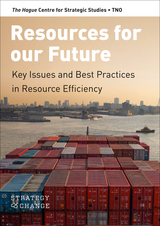
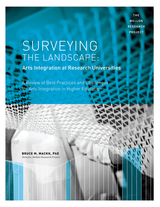
This study presents “best practices in the integration of arts practice in U.S. research universities . . . , fulfill[ing] the need for a document that articulates models, obstacles, implementation strategies, costs, and impact on students and faculty as well as on research, practice, and teaching in other knowledge areas” (ArtsEngine). Rather than providing a detailed set of instructions, this document maps the landscape of arts integration at 30 partner institutions in the Alliance for the Arts in Research Universities (a2ru) and at 16 other institutions. It highlights aspirational models and presents an overall guide to current practices linking the arts to other learning areas.
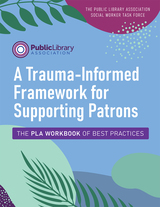
- delve into what trauma is and how it impacts library work;
- be introduced to a framework for utilizing a trauma-informed lens in your interactions;
- practice exercises to spur personal reflection on common concerns bound up with library work and the policies relating to these issues; and
- gain hand-on tools and techniques, including strategies for de-escalation and guidance on the impacts of involving law-enforcement and banning patrons.
You will also explore various scenarios which provide the opportunity to integrate what you’ve learned and practice responding through a trauma-informed lens, including
- Mental Health Challenges
- Sleeping at the Library
- Strong Personal Odor
- Personal Belongings
- Suspected Intoxication/Under the Influence
- Substance Use
- Threatening Verbal and Nonverbal Behavior
- Unsheltered Teens
- Adult Self-Neglect
- Child Abuse or Assault
- Solicitation or Panhandling
- Stealing
- Child Unattended After Closing
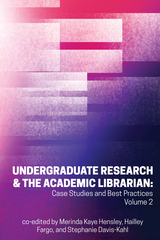
—From the Foreword by Janice DeCosmo
Undergraduate research is a specific pedagogical practice with an impact on teaching and learning, and the definition of what counts as research continues to expand to include different types of projects, mentors, and institutions. Diversity, equity, and inclusion in librarians’ work with students and faculty are present and growing. Collaborations between faculty, librarians, and students are furthering student knowledge in new ways. This community and an awareness of students’ non-academic challenges demonstrate the library’s contribution to students’ overall sense of belonging within their institutions.
This second volume of Undergraduate Research & the Academic Librarian—following 2017’s first volume—contains 22 new chapters that explore these expanded definitions of research and the changes wrought in the profession and the world in the intervening years. Five sections examine:
- First-Year Undergraduate Research Models
- Cohort-Based Models
- Tutorials, Learning Objects, Services, and Institutional Repositories
- Course-Based Undergraduate Research Collaborations
- Building and Sustaining Programs
READERS
Browse our collection.
PUBLISHERS
See BiblioVault's publisher services.
STUDENT SERVICES
Files for college accessibility offices.
UChicago Accessibility Resources
home | accessibility | search | about | contact us
BiblioVault ® 2001 - 2025
The University of Chicago Press



